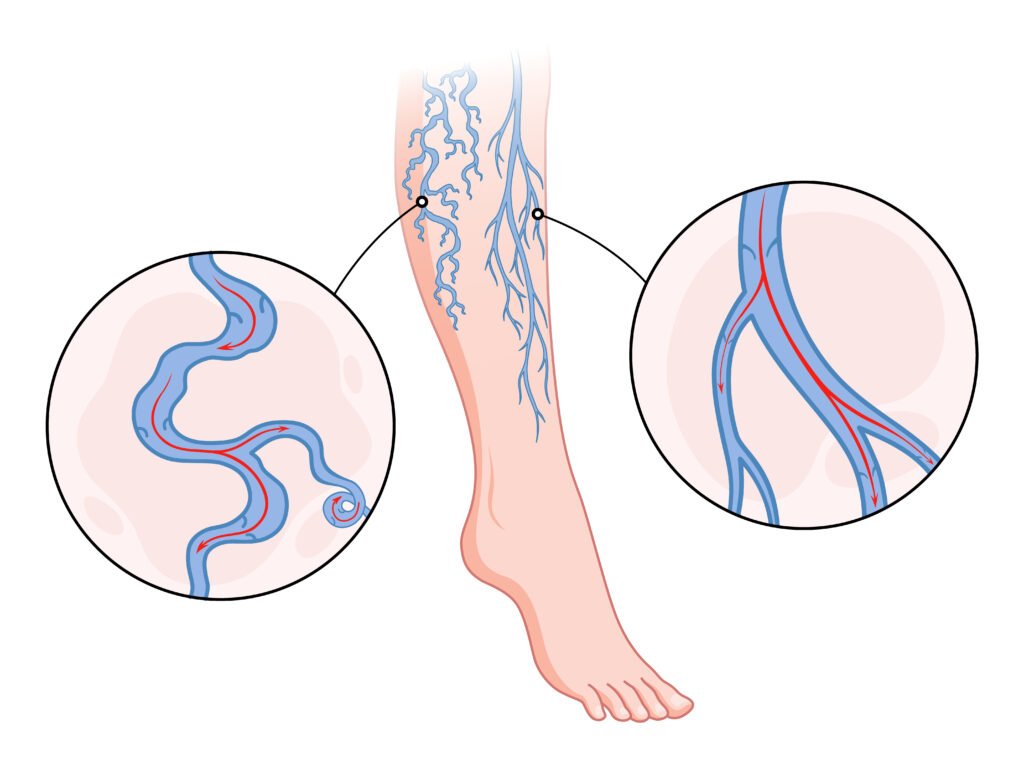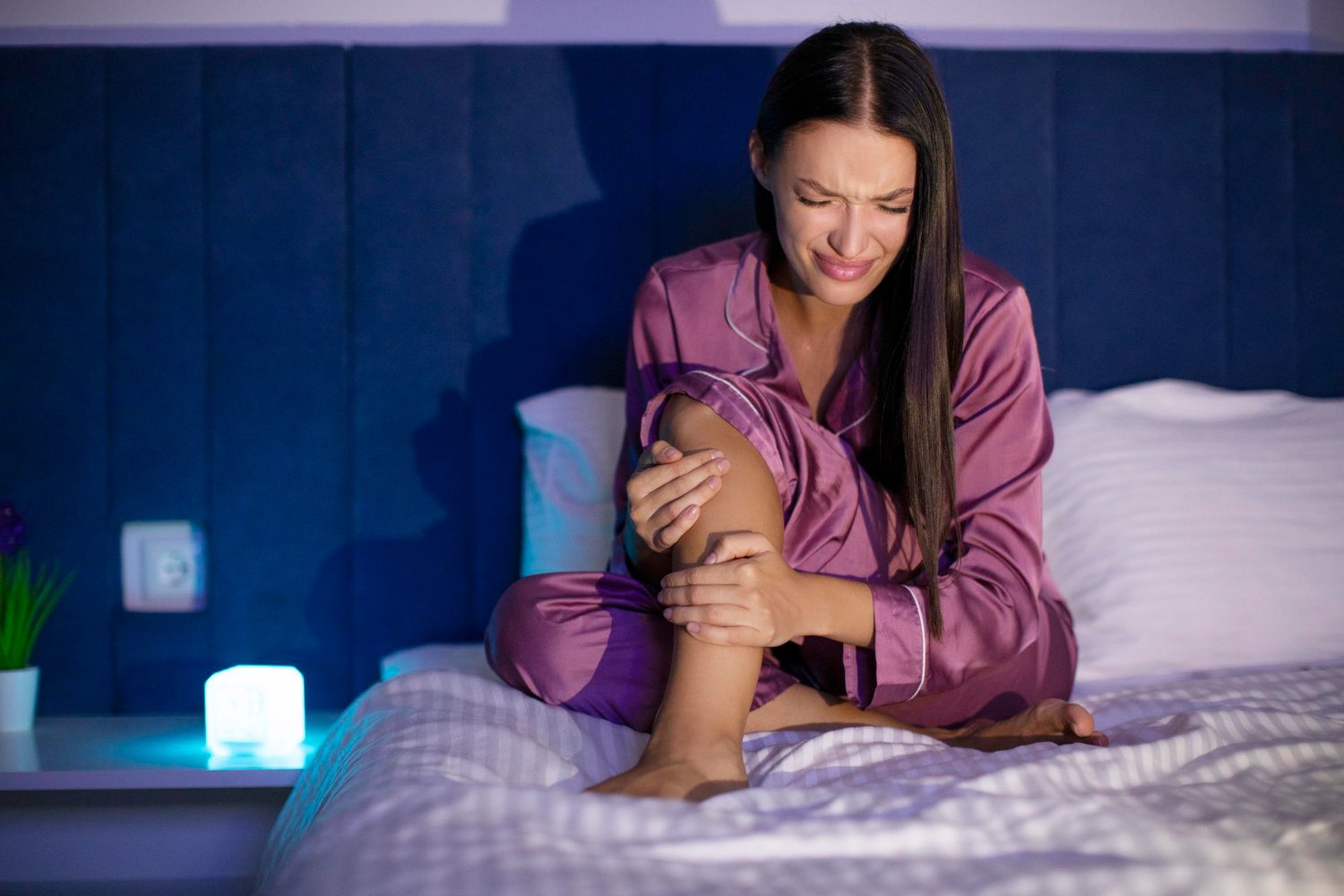What are Varicose Veins?
What are Varicose Veins?
Varicose veins are a very common condition where veins, usually in the legs, become enlarged, swollen, and twisted. They are easy to spot because they often look dark blue or purple and bulge out on the surface of the skin.
Inside our body, veins carry blood back to the heart. To help this process, veins have small valves that keep blood moving in the right direction. When these valves become weak or damaged, blood starts to collect in the veins instead of flowing upward. This extra pressure makes the veins stretch and appear as varicose veins.
Anyone can develop varicose veins, but they are more common in people who stand for long hours, have a family history, are overweight, or in women during pregnancy. In most cases, varicose veins are not dangerous, but they can cause heaviness, pain, swelling, itching, or even skin changes if left untreated.
The good news is that modern treatments are safe, effective, and do not always require surgery. With the help of an experienced radiologist, varicose veins can be treated with minimally invasive techniques like laser therapy or radiofrequency ablation.

Why Do Varicose Veins Happen?
Family History
If parents or grandparents had varicose veins, the chances are higher.
Long Hours of Standing or Sitting
Jobs that require standing all day or sitting for long periods can affect blood flow.
Pregnancy
Extra weight and hormonal changes can put pressure on leg veins.
Lack of Exercise
Less movement reduces blood circulation in the legs.
Operating Hours
-
Park Hospital
Jail RD, Phase 9, Sahibzada Ajit Singh Nagar, Punjab 160062
Mon - Sun : 10:00 AM - 01:00 PM -
Healing Hospital
4th Floor, Healing hospital, Sector 34A, Sector 34, Chandigarh, 160022
Mon - Sun : 02:00 PM - 06:00 PM
Why Choose Us
Symptoms to watch out for:
Varicose veins make it harder for blood to flow back to the heart. This can cause blood to collect in the legs, leading to pain, a heavy feeling, or swelling, especially after standing or sitting for a long time.
When veins are stretched and filled with blood, they may create a burning or throbbing sensation. This discomfort often gets worse at the end of the day or after long hours of standing.
Many people with varicose veins experience painful leg cramps at night. This happens because poor blood flow puts extra pressure on the leg muscles, which triggers sudden tightening or cramping.
Varicose veins can irritate the skin above them. This may cause dryness, itching, or a rash. Sometimes, people mistake this itching for a skin allergy, but it’s actually linked to vein problems.
Can Varicose Veins be Treated?
Yes, absolutely! Modern treatments are safe, simple, and do not always need surgery. With the help of an experienced radiologist, procedures like laser therapy, radiofrequency ablation, or sclerotherapy can give relief without scars or long hospital stays.
If you are searching for the Best Radiologist in Chandigarh for varicose vein treatment, Dr. Rajarshi Bahadur at Healing Hospital and Park Hospital offers advanced, minimally invasive solutions with excellent results.

